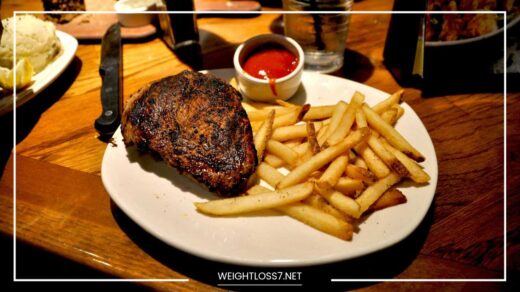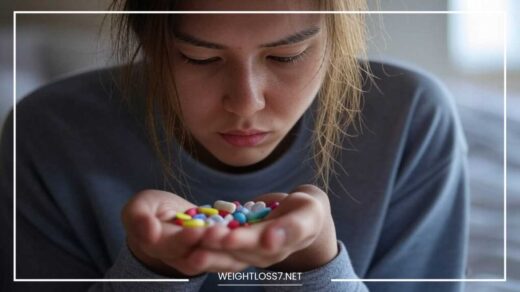Teenage Acne Survival Guide: Get Clear Skin!

Teenage Acne
Teenage Acne: The Ultimate Survival Guide
Let’s face it (pun intended), teenage acne is practically a rite of passage. It can feel like an uninvited guest who crashes your glow-up party, leaving angry red bumps and frustration in its wake.
But fear not, fellow teens! This comprehensive guide is your one-stop shop for understanding, treating, and surviving teenage acne.
Demystifying the Breakout: A Deep Dive into Acne Science
Understanding the science behind those pesky breakouts can be empowering. During puberty, a hormonal rollercoaster throws your body into overdrive. Androgens, specifically, see a surge in production, leading to an increase in oil (sebum) production.
When this sebum mixes with dead skin cells, it clogs your pores. But the party doesn’t stop there. Bacteria love to take up residence in these clogged pores, causing inflammation – aka pimples, blackheads, and whiteheads.
The Acne Family Tree: Identifying Your Breakout Foes
The acne family tree is surprisingly diverse, with each member requiring slightly different tactics. Here’s a breakdown of the most common culprits and their characteristics:
- Blackheads: These are those stubborn little dark dots that seem to have taken permanent residence on your nose and chin. They’re essentially clogged pores filled with sebum and dead skin cells, but haven’t gotten inflamed yet.
- Whiteheads: Unlike blackheads, whiteheads haven’t opened to the air, hence the white color. You can think of them as blackheads’ shy cousins.
- Papules: These are small, red, and inflamed bumps that haven’t yet reached pustule status.
- Pustules: Pustules are the classic “whiteheads with pus” pimples. They’re formed when bacteria infects the clogged pore, resulting in that signature white center.
- Nodules: These are larger, solid bumps that reside deeper in the skin and can be quite painful. Unlike papules and pustules, nodules lack the white or yellow pus at the center.
- Cysts: Cysts are the deep-seated, pus-filled monsters of the acne world. They can be very painful, leave scars if not treated properly, and often require a dermatologist’s intervention.
Fighting Back: A Comprehensive Arsenal for Acne Treatment
Now that you know your enemy, it’s time to assemble your arsenal. Here are some effective weapons in your teenage acne-fighting army:
- Over-the-counter (OTC) treatments: These readily available drugstore options come in various forms like cleansers, gels, and creams. Look for ingredients like benzoyl peroxide, salicylic acid, and alpha hydroxy acids (AHAs) that target different aspects of acne. Benzoyl peroxide helps kill bacteria, salicylic acid unclogs pores by exfoliating dead skin cells, and AHAs promote cell turnover.
- Prescription medications: If your acne is more severe and OTC treatments haven’t yielded significant results, a dermatologist can prescribe stronger topical medications or oral antibiotics. Topical retinoids, like tretinoin (Retin-A), can be highly effective but require careful use due to potential sun sensitivity. Oral antibiotics, while effective in reducing inflammation, should be used under a doctor’s supervision to avoid antibiotic resistance.
- Diet: While pizza may be your current BFF, sugary and processed foods can exacerbate acne. Focus on a balanced diet rich in fruits, vegetables, and whole grains. These foods provide essential nutrients that contribute to overall skin health. While research on the exact link between diet and acne is ongoing, some studies suggest a connection between high glycemic index foods and breakouts. Moderating sugary drinks and processed carbohydrates may be beneficial.
- Stress management: Stress is a major trigger for many teens, and it can worsen acne. Finding healthy ways to manage stress, like exercise, meditation, yoga, or spending time with loved ones, can significantly impact your skin’s health. Exercise helps reduce stress hormones like cortisol, which can contribute to breakouts.
Beyond Products: Building a Powerful Skincare Routine
Think of your skincare routine as your personal acne-fighting army. Here’s how to train your troops for optimal effectiveness:
- Cleanse twice a day: Morning and night, wash your face with a gentle cleanser specifically formulated for acne-prone skin. Harsh scrubs can irritate your skin and worsen breakouts. Look for cleansers with salicylic acid or benzoyl peroxide for added acne-fighting power.
- Moisturize: Just because your skin is oily doesn’t mean you don’t need moisturizer! Skipping moisturizer can actually lead to your skin overproducing oil to compensate for the dryness. Choose an oil-free, non-comedogenic moisturizer to keep your skin hydrated without clogging pores. Look for ingredients like hyaluronic acid or glycerin, which attract water to the skin without feeling greasy.
-
Sunscreen is a must: Sun exposure can worsen acne and leave scars. Apply a broad-spectrum SPF 30 sunscreen every single day, even on cloudy days. The sun’s UVA and UVB rays can damage the skin and trigger inflammation, leading to breakouts. Look for a non-comedogenic sunscreen that won’t clog your pores.
-
Spot treatment: For those occasional breakouts, a good spot treatment can be your secret weapon. Look for products containing benzoyl peroxide or salicylic acid to target individual pimples. Apply a thin layer directly to the pimple, avoiding healthy skin around it.
-
Don’t pick! We know it’s tempting, especially when you’re staring at a monster pimple in the mirror. Picking at your pimples can lead to scarring and inflammation. The urge to pick is often strongest during times of stress, so having healthy stress-management techniques in place can be particularly helpful.
The Teenage Mindset: Cultivating Confidence Beyond Breakouts
Teenage acne can be a confidence crusher. Here are some tips to navigate the emotional rollercoaster and maintain a positive self-image:
-
Be patient: Treating acne takes time. Consistent use of effective products and a healthy lifestyle are key, but don’t expect overnight results. Celebrate small victories and stay motivated on your journey to clearer skin.
-
Focus on the good: A pimple doesn’t define you! Focus on your strengths and positive qualities. Make a list of things you love about yourself, both physical and non-physical. This can help boost your self-esteem and remind you of your worth.
-
Seek support: Talk to a friend, family member, therapist, or dermatologist about how your acne is making you feel. Bottling up your emotions can worsen stress and contribute to breakouts. Having a support system can make a big difference.
-
Challenge negative thoughts: Negative self-talk about your acne can be a real downer. When you find yourself dwelling on your breakouts, challenge those negative thoughts. Replace them with positive affirmations about your skin and your overall beauty.
-
Embrace makeup (if that’s your thing): While makeup isn’t a cure for acne, it can help you feel more confident. Look for non-comedogenic makeup that won’t clog your pores. Apply a light layer to even out your skin tone and camouflage blemishes. Remember, makeup is a tool to enhance your natural beauty, not hide your true self.
Bonus Tips and Tricks:
- Keep your phone clean: Your phone touches your face constantly throughout the day. Regularly clean your phone screen with disinfectant wipes to prevent the transfer of bacteria to your skin.
- Wash your pillowcases regularly: Dead skin cells and bacteria can accumulate on your pillowcase, so wash them at least once a week in hot water to prevent them from transferring back to your face.
- Hydration is key: Drinking plenty of water throughout the day helps keep your skin hydrated and promotes overall health. Aim for eight glasses of water per day.
- Explore natural remedies: While not a substitute for traditional acne treatments, some natural remedies like tea tree oil or witch hazel can be used as spot treatments for mild acne. However, it’s important to patch test these products on a small area of your skin first to ensure they don’t cause irritation.
- Be wary of social media “hacks”: There’s a lot of misinformation floating around online about acne treatments. Be skeptical of any “miracle cures” you see on social media. Always consult with a dermatologist before trying any new acne treatment.
Remember, you are not alone! Millions of teens around the world are battling acne. With the right knowledge, a personalized skincare routine, and a positive mindset, you can conquer your breakouts and feel confident in your own skin. This journey may take time and effort, but with dedication and the right approach, clearer, healthier skin is within reach!
The Ultimate Weapon: The Dermatologist – Your Acne Ally
While this guide equips you with valuable tools to combat acne, there’s a powerful ally in your corner: the dermatologist. These qualified healthcare professionals specialize in diagnosing and treating skin conditions, including acne.
When to See a Dermatologist:
- Severity: If your acne is severe, cystic, or doesn’t respond to OTC treatments within a reasonable timeframe (usually 6-8 weeks), a dermatologist can create a personalized treatment plan using prescription medications or other interventions.
- Scarring: If you’re concerned about potential scarring from acne, a dermatologist can assess the risk and recommend preventative measures or scar-reduction treatments.
- Painful breakouts: Nodular and cystic acne can be very painful. A dermatologist can provide relief through injections or other targeted treatments.
- Mental health impact: If your acne is significantly impacting your self-esteem and mental well-being, a dermatologist can provide support and guidance.
What to Expect During a Dermatologist Visit:
- Consultation: The dermatologist will discuss your medical history, current skincare routine, and lifestyle habits.
- Examination: They will examine your skin closely to assess the type and severity of your acne.
- Diagnosis and Treatment Plan: Based on the examination, the dermatologist will diagnose your acne and develop a personalized treatment plan. This may include prescription medications, topical treatments, lifestyle changes, or other interventions.
The Benefits of Seeing a Dermatologist:
- Expert Diagnosis and Treatment: Dermatologists have the knowledge and expertise to accurately diagnose your acne and recommend the most effective treatments.
- Personalized Approach: They can tailor a treatment plan to your specific needs and skin type, ensuring optimal results.
- Access to Advanced Treatments: Dermatologists have access to a wider range of treatments, including prescription medications, acne surgery (in severe cases), and light therapies, which may not be available over-the-counter.
- Ongoing Support: They can monitor your progress, adjust your treatment plan as needed, and answer any questions you may have throughout your acne journey.
Remember: Consulting a dermatologist is an investment in your skin health and overall well-being. Don’t hesitate to seek professional help if you’re struggling with acne.
Living Beyond Acne: Building Long-Term Skin Health
Even after you achieve clearer skin, maintaining a healthy skincare routine is crucial to prevent future breakouts. Here are some long-term habits to integrate:
- Maintain a consistent skincare routine: Stick with your dermatologist-recommended routine even after your acne clears. This will help prevent future breakouts.
- Healthy lifestyle choices: Continue to prioritize a healthy diet, regular exercise, and stress management techniques. These habits contribute to overall skin health and well-being.
- Sun protection always: SPF is your BFF, even on cloudy days. Consistent use of sunscreen helps prevent sun damage and hyperpigmentation (dark spots) that can sometimes occur after acne heals.
- Listen to your skin: Pay attention to how your skin reacts to different products and adjust your routine accordingly. Don’t be afraid to consult your dermatologist if you experience any irritation or new breakouts.
Final Word:
Teenage acne can be a frustrating experience, but it’s important to remember that it’s a temporary condition. With the right knowledge, a personalized approach, and a positive mindset, you can conquer your breakouts and achieve healthy, glowing skin.
By utilizing the resources outlined in this guide and building a strong relationship with your dermatologist, you’ll be well on your way to a clearer complexion and a more confident you.

















